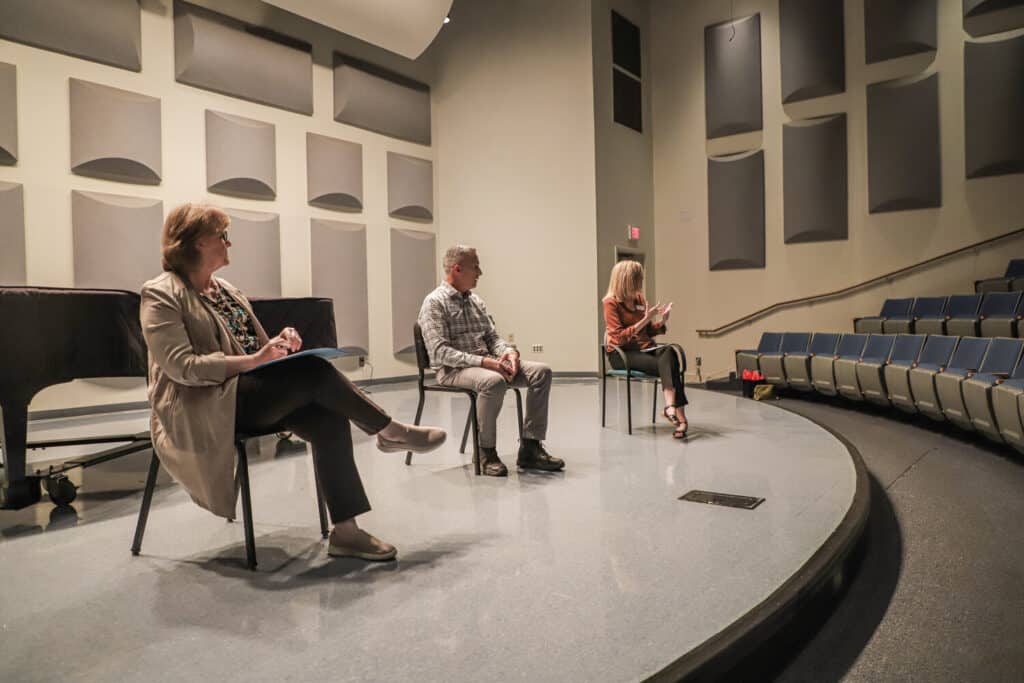
ADHD: what can I do to help myself and others?
Abigail Dickerson, Staff Writer
Many students struggle with Attention Deficit Hyperactivity Disorder all around the world, but how are they being helped? In a panel discussion earlier last week, Steve Bielby, NGU’s director of counseling and Jo Garret from the North Greenville University counseling center and center for student success answered some common questions on the topic.
ADHD is something that is most common in children, but also can develop into adulthood. Some common symptoms include inattention, hyperactivity and spontaneous activity. Sometimes these things do naturally occur in children, but when it starts to hinder their ability to function, it becomes something that requires a diagnosis.
There are three types of ADHD, which include inattentive, hyperactive and combined. In recent years, the diagnosis for Attention Deficit Disorder is no longer a diagnosis, rather it falls into the inattentive category of ADHD. Hyperactivity is the more common idea of the formal ADHD diagnosis.
Symptoms for young adults can look somewhat different than in children. For example, some have ADHD and are not very hyperactive, but rather have a hard time focusing on an assignment, keeping track of personal belongings or not forgetting things easily. These are a few things that college students struggling with ADHD have to deal with.
If ADHD worsens, the individual needs to see a psychiatrist because he/she specializes in that area. Many people, students included, tend to self-diagnose things like ADHD. It is important to see a doctor to get a treatment plan, which often include counseling or sometimes medication to help the brain’s chemical imbalance.
Students who are formally diagnosed with a condition are eligible for academic accommodations, which will help students learn in the easiest ways for each of them. Accommodations are tools that will allow students to succeed in an environment that allows them to thrive. One example of an accommodation is private test-taking, which can help reduce levels of anxiety.
Dr. Garret said, “Over 90% of the students that were seeking accommodations had issues refocusing.”
She then went on to talk about how if the interest in a subject is there, it will be easier for these students to maintain their attention.
Students struggling with ADHD often have a hard time adjusting to college life because their ways of coping no longer work in the same ways they did at home. As a chronic mental illness, it can affect all parts of one’s life, including studies and relationships. Adjusting to a new life and a new area can be hard, which is why the counseling center and center for student success is here to assist students with anything they may need.
In order to help NGU students struggling with ADHD, Bielby gave a brief outline of some things that students can do to help ease the effects of ADHD. The first thing he said is to “own it.” What he meant was do not be ashamed of it. He said you are not less intelligent because you have a brain that works a little differently. Next, maybe try to use a planner and see if that can help with organization. Finally, take a break if you need it. People with ADHD have brains that are always running with thoughts and sometimes all you need to do is simply take a small brain break. The tools you have are only as good as your use of them.
ADHD is an invisible disability, but that does not make it any less real than a visible one. It needs to be treated as such and that is why you need to provide documentation to receive accommodations. This is for your safety and to help your mentors help you better.
Students, know that your friends are not being lazy, there is a real underlying concern that they may be struggling with. Be patient with them and let them know that you are supportive of them and want to see them succeed. Take care of your fellow Crusaders by sitting, listening and helping when you can.
